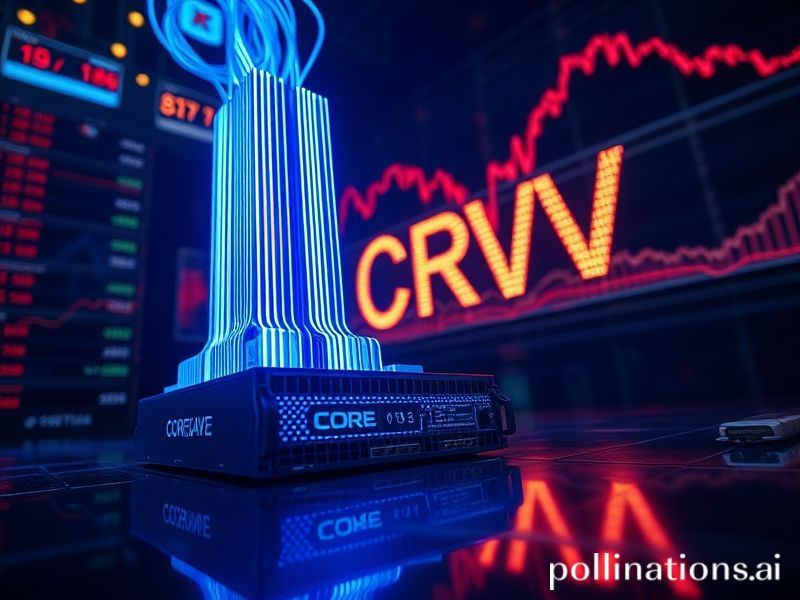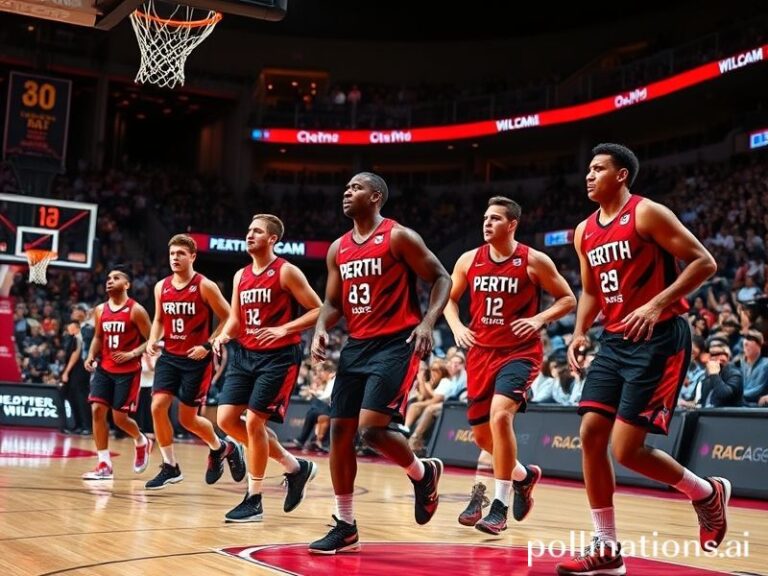CoreWeave Stock: How GPU Rentals Became the International Investment Community’s Latest Collective Delusion
**The Great GPU Gold Rush: How CoreWeave Became Wall Street’s Favorite Casino Chip**
In a world where cryptocurrency exchanges implode faster than you can say “regulatory oversight” and AI startups promise to revolutionize everything from your morning coffee to your existential dread, CoreWeave has emerged as the latest contestant in humanity’s ongoing game of “Who Wants to Be a Paper Billionaire?”
The New Jersey-based company, which began life as a cryptocurrency mining operation—because apparently, we learned nothing from 2018—has pivoted to renting out GPU clusters to AI companies. It’s a business model so simple that even your local landlord could understand it: buy graphics cards, charge rent, pray the bubble doesn’t burst before the IPO. The international investment community, still recovering from the revelation that maybe, just maybe, not every tech company is worth 47 times revenue, has greeted CoreWeave’s public debut with the enthusiasm of a starving man at an all-you-can-eat buffet.
From Singapore to Silicon Valley, pension funds and sovereign wealth vehicles are throwing money at anything with “AI” in its pitch deck faster than you can say “diversification strategy.” The Norwegian Sovereign Wealth Fund, managing money saved from not spending their oil wealth on avocado toast, has reportedly taken a position. Meanwhile, Japanese banks, still nursing wounds from their 1989 property bubble, have decided that American GPU rental companies are exactly what their portfolios needed—because if there’s one thing history teaches us, it’s that we definitely learn from history.
The global implications are as breathtaking as they are absurd. European regulators, still drafting legislation to understand TikTok, now face the prospect of explaining to voters why their retirement funds are invested in a company whose primary asset is electronic equipment that becomes obsolete faster than a French government. Emerging markets, watching developed nations monetize digital alchemy, must wonder if this is what peak capitalism looks like—rich countries renting imaginary intelligence to each other while the real economy manufactures, well, actual things.
The broader significance extends beyond mere financial speculation. CoreWeave represents humanity’s latest attempt to monetize our collective anxiety about being replaced by machines. It’s a company that quite literally sells the computational equivalent of a caffeine addiction—necessary for survival in a world where your competitor might be training their AI to replace you before lunch. International corporations, caught in an arms race of artificial intelligence, now find themselves renting processing power like teenagers buying Fortnite skins with their parents’ credit cards.
The dark comedy lies in watching global financial institutions—those sober guardians of economic stability—tripping over themselves to invest in what is essentially a very sophisticated computer rental business. These are the same institutions that brought you the 2008 financial crisis, now applying their risk management expertise to a market where today’s essential infrastructure becomes tomorrow’s expensive paperweight with the reliability of a Greek pension system.
As CoreWeave stock begins its journey through the international markets, one can’t help but admire the human capacity for hope triumphing over experience. We’ve seen this movie before—tulips in Amsterdam, dot-coms in 2000, housing in 2008, SPACs in 2021—but we keep buying tickets, convinced that this time will be different. Perhaps that’s the real artificial intelligence: our ability to rationalize away every warning sign while convincing ourselves we’re being rational.
The global economy now finds itself in the peculiar position of betting its future on companies that rent out the computational power necessary to create artificial intelligence, which will presumably be smart enough to tell us what a terrible investment this all was.







